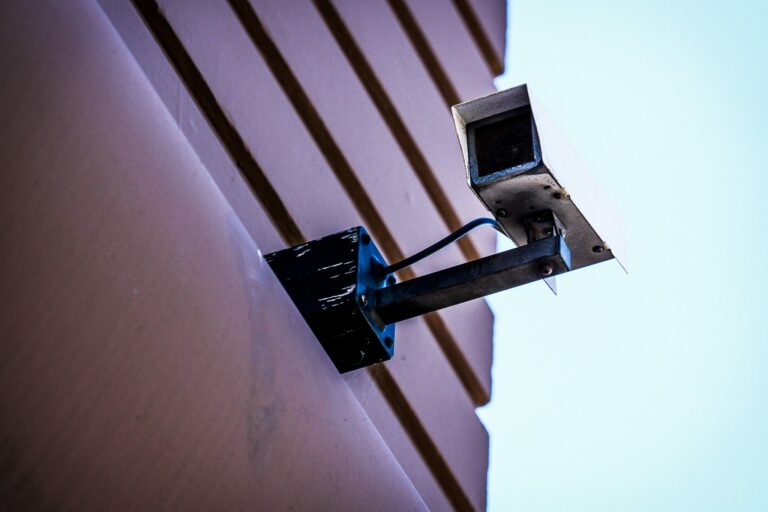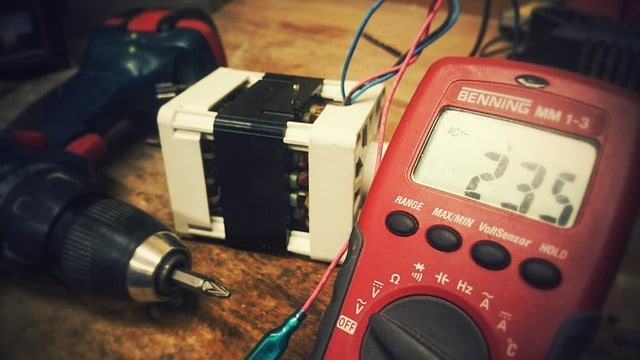When determining the type of security camera or system you need, it is critical to understand the difference between wired security systems and wireless security systems. While it can seem pretty intuitive at first, the nuances between the three lie in the details. We know there’s a lot to consider when choosing a security system, so our security experts are breaking down wire-free and wired vs. wireless security cameras, detailing the pros and cons of each to help you find the best security solution for your property.
WIRED SECURITY CAMERAS
Wired security systems are the most traditional and used primarily on larger properties. Evidenced by their name, wired security, these systems require cables for power, internet connection, and video transmission. A cable runs from the camera to a recorder, which then connects to your router. There are two choices for how a wired security system is powered, a separate power cord or one POE cable. POE or Power Over the Ethernet enabled systems only require one cable which provides both power and internet connection.
Pro: Reliability
The main strength of wired security is reliability.
Pro: Supports Larger Systems
One of the primary determining factors when choosing a wired vs. wireless security camera system is the size of your property and the number of cameras needed.
Con: Installation Time
One of the most significant drawbacks of a wired system is the installation process.
Con: Vulnerable to Power Outages
Another disadvantage of wired security systems is their vulnerability to power outages.
Pro & Con: Better for Long-Term, Permanent Security Solutions
A wired security camera system is better suited for homeowners or businesses with a more permanent location due to the installation time.
WIRELESS SECURITY
Wireless security systems are a great alternative to wired systems. Wireless systems aim to address the most significant downside to a wired security camera system: installation. The key difference between a wired and wireless security camera system is that security footage is transmitted wirelessly from the camera to the recorder. Wireless systems connect to your Wi-Fi network (either wirelessly or with a cable), however, do still require wired power.
Pro: Easy Installation
Installation is one of the main benefits of wireless systems as compared to wired systems.
Pro: Ideal for Renters & Homeowners
Unlike wired security camera systems which are more permanent, a wireless system is easy to setup, take down, and move.
Con: Interference
One of the significant downsides of wireless security cameras is they are susceptible to interference, which can make them less reliable in some situations.
Con: Dependent on a Wireless Signal
Your wireless signal strength, or your scope of coverage, is tied to a number of factors including your router, the presence of, the amount of interference, and the route the signal has to take to get to your cameras.
Con: Vulnerable to Power Outages
As wireless systems still require a hard-wired power connection, they are susceptible to power outages as with wired systems.
Con: Limited Size
Wireless security systems are limited to only four cameras which for most homes is more than sufficient.
WIRED AND WIRELESS SECURITY SYSTEMS
Before you add any security system, evaluate the current security of your property. The property size and security needs will ultimately determine what system is best. Not sure where to get started? Our home security checklist breaks down the top three elements of home security. Then, use our security systems comparison chart to further understand how the three types differ will help you install a security system that works and gives you peace of mind.
Now that you know the difference between wired vs. wireless vs. wire free security, learn about the different recorders available, NVR or DVR.
Read also: Alarm Monitoring, how it works and how to choose a service provider in New Zealand
Read also: How Does Alarm Monitoring Work With Naked Broadband
Get your business noticed by creating an online directory listing. Listings are FREE and you can create as many as you need.
- Get found by locals



